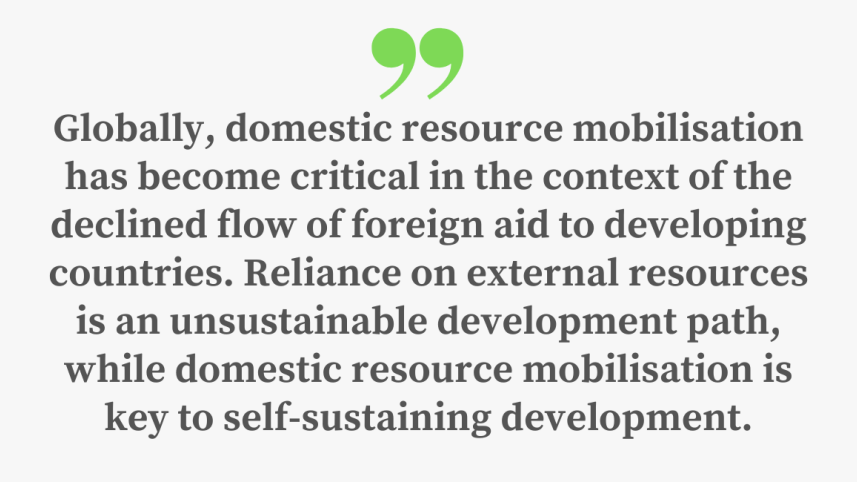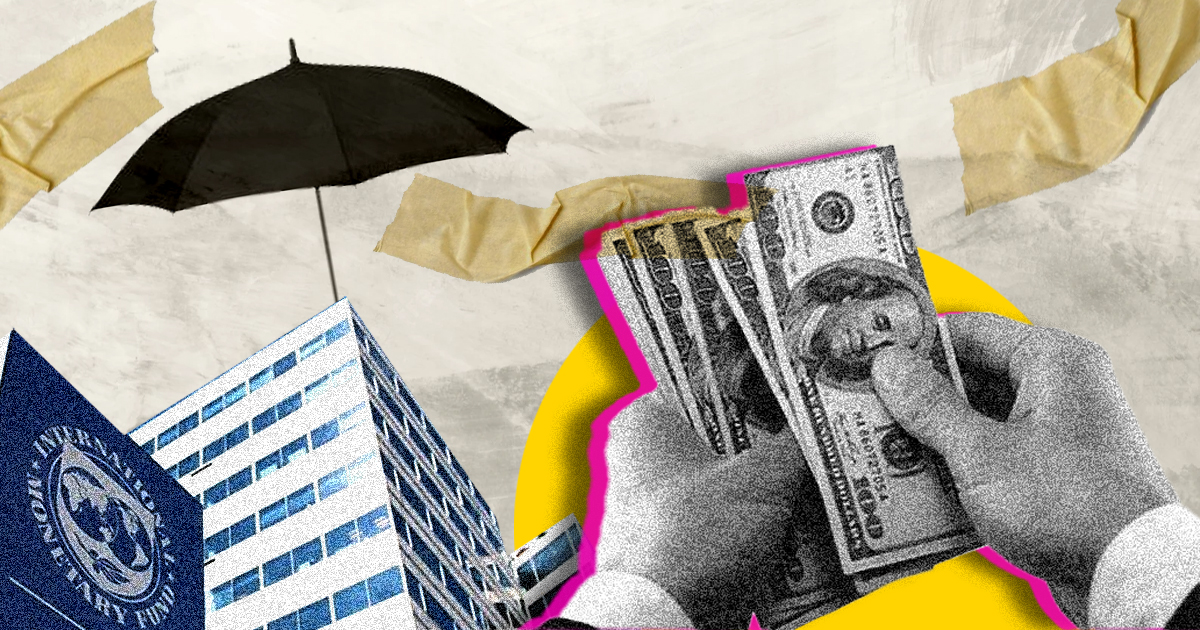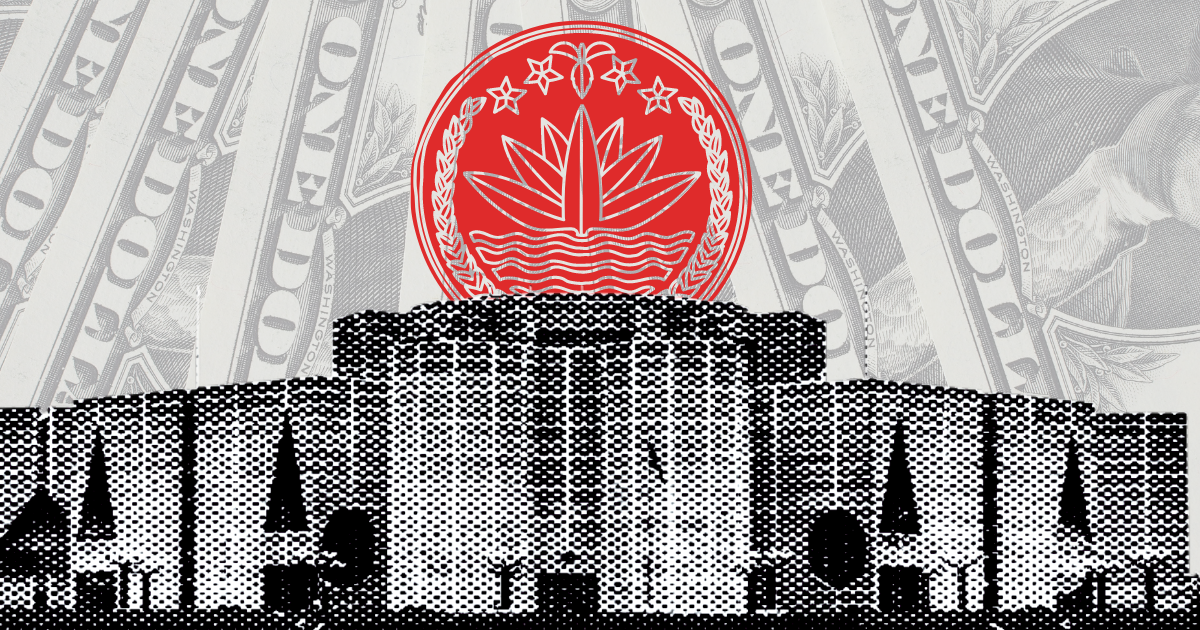For a better fiscal space, we need efficient tax system

The International Monetary Fund (IMF) has finally approved a USD 4.7 billion loan for Bangladesh, accepting the country's request for funds in the face of its declining foreign exchange reserves. As a conditionality of this loan, the Bangladesh government must undertake several reform measures in many areas, one of which is improving the country's fiscal space.
Irrespective of IMF conditionality, this is an area on which the government should work more, since our fiscal space is shrinking with the increasing priorities against a low tax-to-GDP ratio. In FY 2021-22, our tax-GDP ratio was only about 7.5 percent. In a country of more than 165 million people (Census 2022), only eight million people have a tax identification number (TIN), of whom only 2.8 million submit tax returns. This indicates low tax net and high tax evasion. As the size of the economy and per capita income is increasing, the disposable income of some sections of the population is also increasing. But this change is not reflected in the country's revenue generation.
Improving our revenue generation will require several measures, both technical and non-technical. As far as technical measures are concerned, using information technology will help establish a smooth and easy tax collection procedure. As a result, it will also increase tax compliances, and governance of the tax system will improve. Technology can be used to also track people's income and expenditure. The National Board of Revenue (NBR) will be able to work efficiently and effectively in a modern automated system.
The NBR employed a few reform measures in the past, which saw some success. But there is a lot to be done still. Measures such as the upgradation of the Automated System for Customs Data (ASYCUDA), consolidation and integration of Integrated Budget and Accounting System (iBAS++), electronic return filing, electronic tax deducted at source (e-TDS), automated customs risk management, and introduction of authorised economic operator system were proposed a few years ago. The government needs to expedite such reform measures for better and faster outcomes.

The non-technical efforts are no less important for increased tax collection. Many people don't want to come under the tax system for several reasons. There is a lack of awareness on the tax mechanism. People also fear hassle and harassment if they come under the tax radar. There is a general idea that those who are regular taxpayers are targeted for more and more taxes, instead of the powerful tax evaders. People also feel unhappy about the services they receive from the government even after paying taxes, with complaints of having to pay bribes for said services.
Hopefully, with higher tax collection, the overall domestic resource mobilisation situation will improve. Of course, this depends on several factors. The first and foremost is a sound public spending management; for economic development, public expenditure must be managed efficiently and prudently. In recent years, Bangladesh has seen large investment in infrastructure. But those investments are not always free of corruption. So, the dual challenge for our policymakers is to generate adequate domestic resources and utilise them in a manner that contributes to our economic growth and enhances welfare in the most optimised way.
How the government spends the taxed income is also very important. Taxpayers want to see proper utilisation of their hard-earned money. They want to know the quality of public expenditures and whether they are creating enough jobs and reducing poverty. Taxpayers want services from public representatives and officials when they seek support from them. People also see how the other eligible taxpayers are behaving. If their friends and acquaintances get away with paying little to no tax, they would not be encouraged to pay taxes. Without addressing these issues, technical solutions will not be effective.
Globally, domestic resource mobilisation has become critical in the context of the declined flow of foreign aid to developing countries. Reliance on external resources is an unsustainable development path, while domestic resource mobilisation is key to self-sustaining development. There is a predictability of resource flow through domestic resource mobilisation, which helps a government with short- and medium-term fiscal planning. On the other hand, the flow of external aid is volatile and unpredictable. This puts an aid-recipient country in trouble in case of budget management.
Moreover, the availability of adequate domestic resources helps a government to prioritise its national expenditures according to its commitments. It has a flexibility to devote resources as per its national priority, as opposed to aid conditionalities. Third, people contribute to domestic resource mobilisation through paying taxes from their income. This creates a sense of participation in the country's development process. Therefore, people have the right to play watchdog and ask about the proper utilisation of their money, and create pressure on public representatives for accountability and transparency of resource utilisation.
Over the past decades, some initiatives were taken by the government of the day to enhance resource mobilisation through expansion of tax net and realisation of taxes. But the outcomes have been less than satisfactory, as the initiatives were taken on a piecemeal basis. Also, several of such measures were driven by international organisations, including the IMF, and were not homegrown. Imposition of policies by external agencies and donors as a precondition for support is bound to fail if those are not owned by the implementing country. How Bangladesh's fiscal framework is strengthened following the acceptance of the IMF loan conditionalities this time is to be observed in the coming days.
Dr Fahmida Khatun is executive director at the Centre for Policy Dialogue (CPD). Views expressed in this article are the author's own.




 For all latest news, follow The Daily Star's Google News channel.
For all latest news, follow The Daily Star's Google News channel. 

Comments